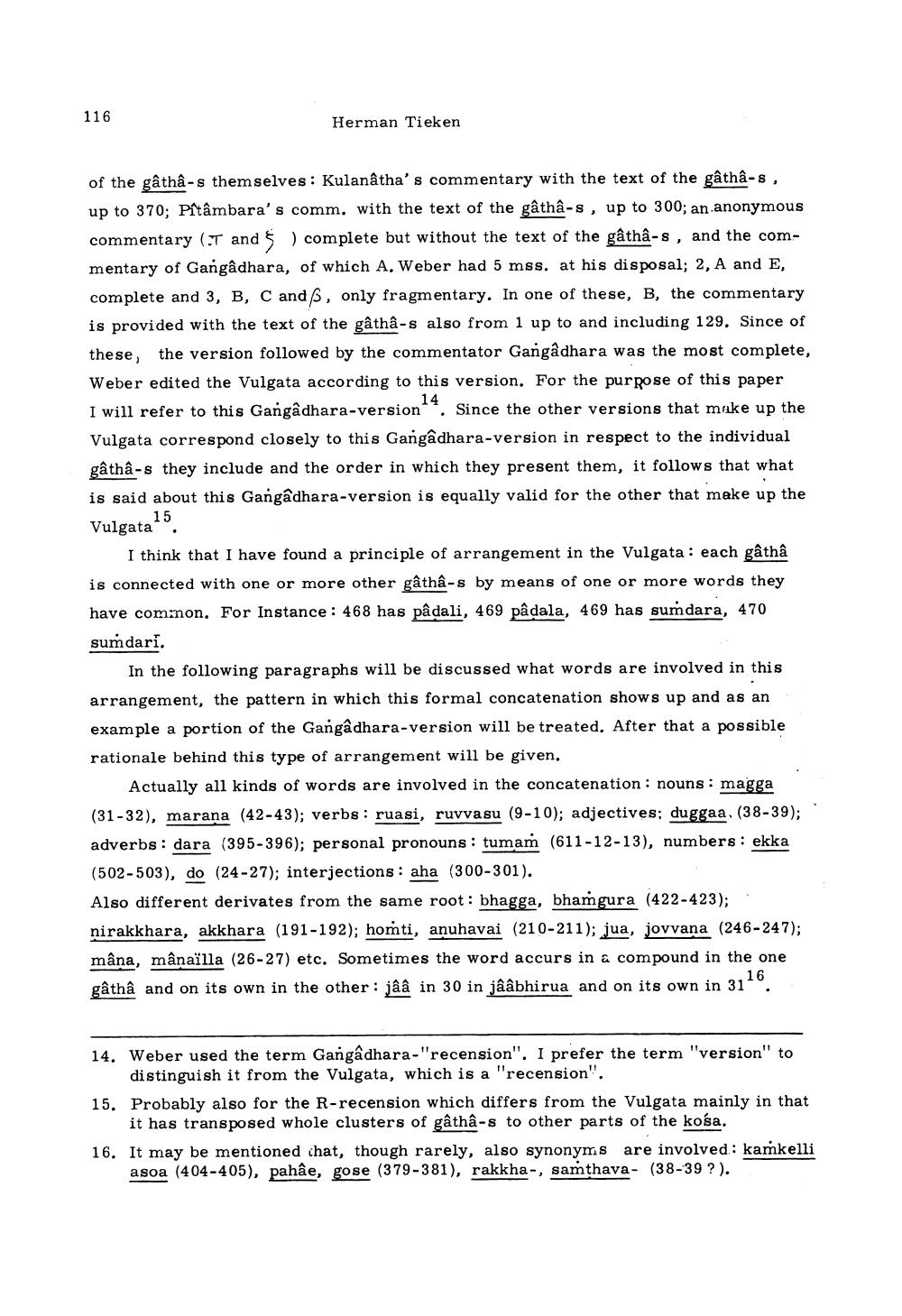Book Title: Studien Zur Indologie Und Iranistik Author(s): Gert Klingenschmitt, Albrecht Wezler, Michael Witzel Publisher: Gert Klingenschmitt, Albrecht Wezler, Michael Witzel View full book textPage 7
________________ 116 Herman Tieken of the gâthâ-s themselves: Kulanâtha's commentary with the text of the gâthâ-s, up to 370; Pítâmbara's comm. with the text of the gâthâ-s, up to 300; an anonymous commentary (.T and $ ) complete but without the text of the gâthâ-s, and the commentary of Gangadhara, of which A. Weber had 5 mss. at his disposal; 2, A and E, complete and 3, B, C and, only fragmentary. In one of these, B, the commentary is provided with the text of the gâthâ-s also from 1 up to and including 129. Since of these, the version followed by the commentator Gangadhara was the most complete, Weber edited the Vulgata according to this version. For the purpose of this paper I will refer to this Gangadhara-version . Since the other versions that make up the Vulgata correspond closely to this Gangadhara-version in respect to the individual gâthâ-s they include and the order in which they present them, it follows that what is said about this Gangadhara-version is equally valid for the other that make up the Vulgata15. I think that I have found a principle of arrangement in the Vulgata : each gâthâ is connected with one or more other gâthâ-s by means of one or more words they have common. For instance: 468 has pâdali, 469 pâdala, 469 has sumdara, 470 suņdari. In the following paragraphs will be discussed what words are involved in this arrangement, the pattern in which this formal concatenation shows up and as an example a portion of the Gangadhara-version will be treated. After that a possible rationale behind this type of arrangement will be given. Actually all kinds of words are involved in the concatenation : nouns: magga (31-32), marana (42-43); verbs : ruasi, ruvvasu (9-10); adjectives; duggaa. (38-39); adverbs: dara (395-396); personal pronouns: tumam (611-12-13), numbers: ekka (502-503), do (24-27); interjections: aha (300-301). Also different derivates from the same root: bhagga, bhamgura (422-423); nirakkhara, akkhara (191-192); homti, anuhavai (210-211); jua, jovvana (246-247); mâna, mânaïlla (26-27) etc. Sometimes the word accurs in a compound in the one gâthâ and on its own in the other: jââ in 30 in jââbhirua and on its own in 31%. 14. Weber used the term Gangadhara-"recension". I prefer the term "version" to distinguish it from the Vulgata, which is a "recension". 15. Probably also for the R-recension which differs from the Vulgata mainly in that it has transposed whole clusters of gâthâ-s to other parts of the kośa. 16. It may be mentioned chat, though rarely, also synonyms are involved: kamkelli asoa (404-405), pahâe, gose (379-381), rakkha-, samthava- (38-39 ?).Page Navigation
1 ... 5 6 7 8 9 10 11 12 13 14 15 16 17 18 19 20 21 22
